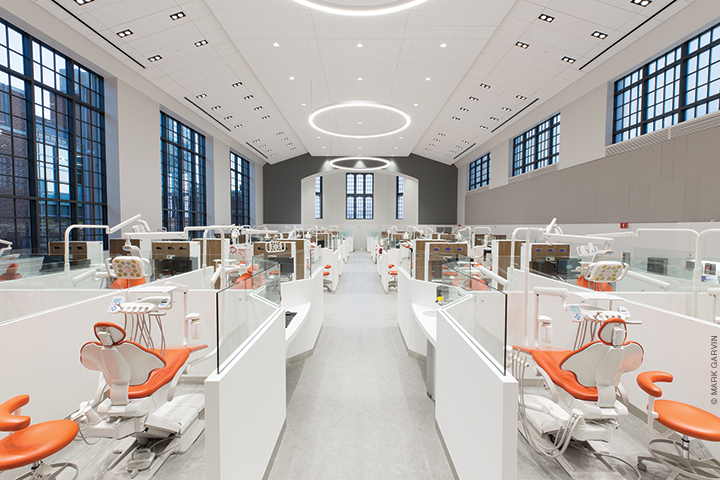
For pregnant women, caring for those pearly whites is not just a matter of good looks but an important factor in their babies’ health.
Gum disease in women has long been connected to premature births. A new study authored by Dr. Marjorie Jeffcoat, dean of Penn’s School of Dental Medicine and professor of periodontics, found that common dental-hygiene procedures administered to expectant mothers with periodontitis (a bacterial plaque infection that attacks the gums and supporting bone, destroying the attachment fibers holding teeth in the mouth) reduced the possibility of preterm birth by as much as 84 percent.
Jeffcoat’s study divided 366 pregnant women with periodontitis into three treatment groups. One group had their teeth cleaned and polished, and received a placebo pill; the second group were treated with scaling and root planing (SRP) and a placebo; and the third, SRP and an antibiotic, metranidazole. She found that performing the SRP procedure did indeed reduce the likelihood of premature birth, but that, unexpectedly, “the group of women who got metranidazole did not experience the same effects—in fact, there was no effect at all.” Surprisingly, it seems that the positive effects of treating the gum disease with SRP disappear when antibiotics are used.
Jeffcoat, who has been conducting research in this area since 1978, says that in previous studies, “we found that women were up to eight times more likely to have a premature infant” if they had periodontitis. Scaling and root planing, the most common treatment for periodontitis, remove plaque and tartar from below the gum line, and smooth the roots of the teeth so that gums can reattach more firmly.
While the connection between premature birth and periodontal disease is not entirely certain, research suggests that the bacterial inflammation of the gums causes an increase in the levels of prostaglandin, a labor-inducing hormone. In the U.S., more than 10 percent of births are defined as pre-term, meaning the baby is born before 37 completed weeks of pregnancy. Premature babies often are low-weight and experience lung and blood-vessel problems. They also can be at a higher risk for cerebral palsy, heart defects, and other developmental problems.
Jeffcoat’s study, published in the Journal of Periodontology, is being reproduced at a larger scale across the country to confirm the statistical significance and validity of the findings across a more diverse population. She is currently working with an ob-gyn at the Hospital of the University of Pennsylvania to look into questions such as why the effects of SRP in pre-term birth prevention disappear with the use of antibiotics.
To stave off premature labor and birth, Jeffcoat says that women considering pregnancy should have a “periodontal screening and get any problems with their oral health under control before becoming pregnant.” For those women who are already pregnant, periodontologists should perform scaling and root planing in the second trimester, she says.
“However, the best policy is prevention,” Jeffcoat adds.
—Alison Stoltzfus C’05




